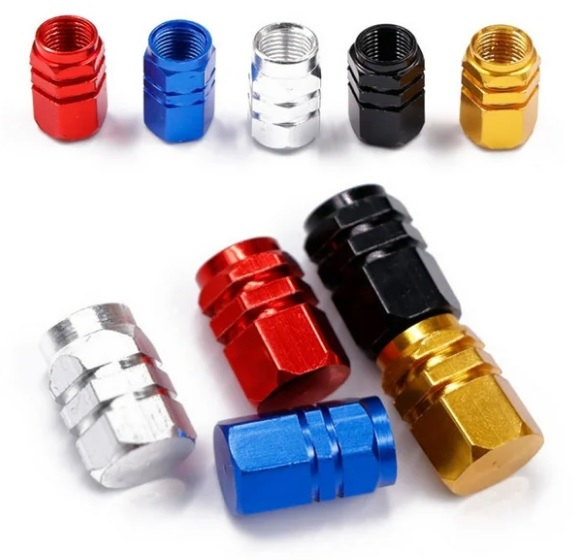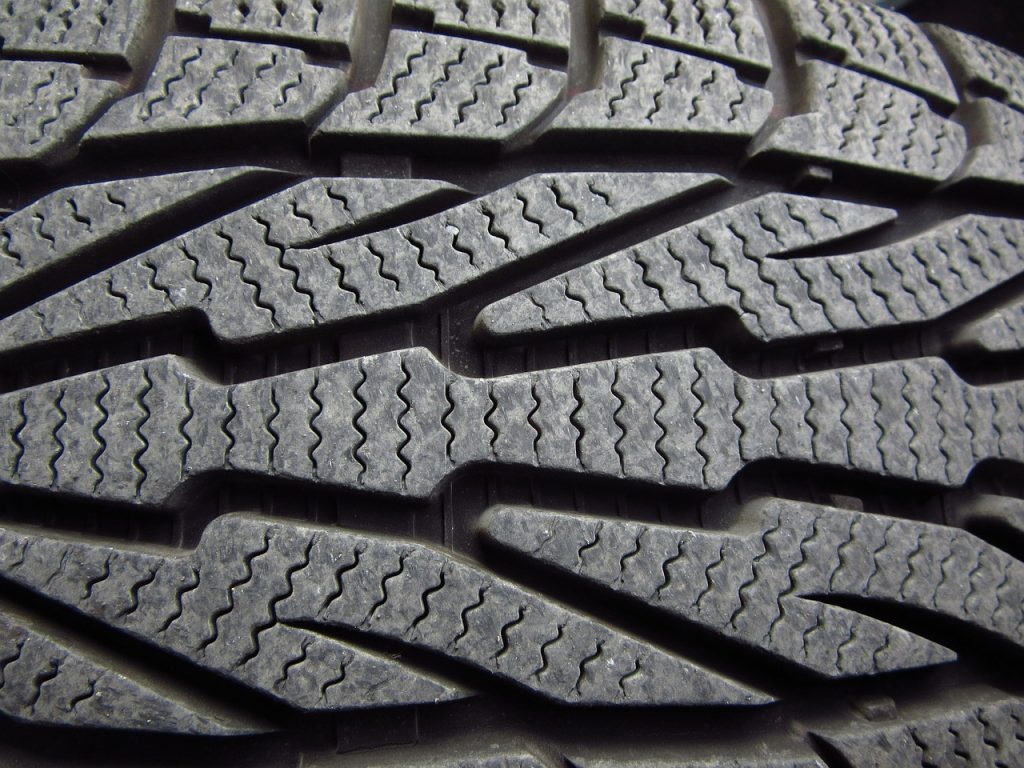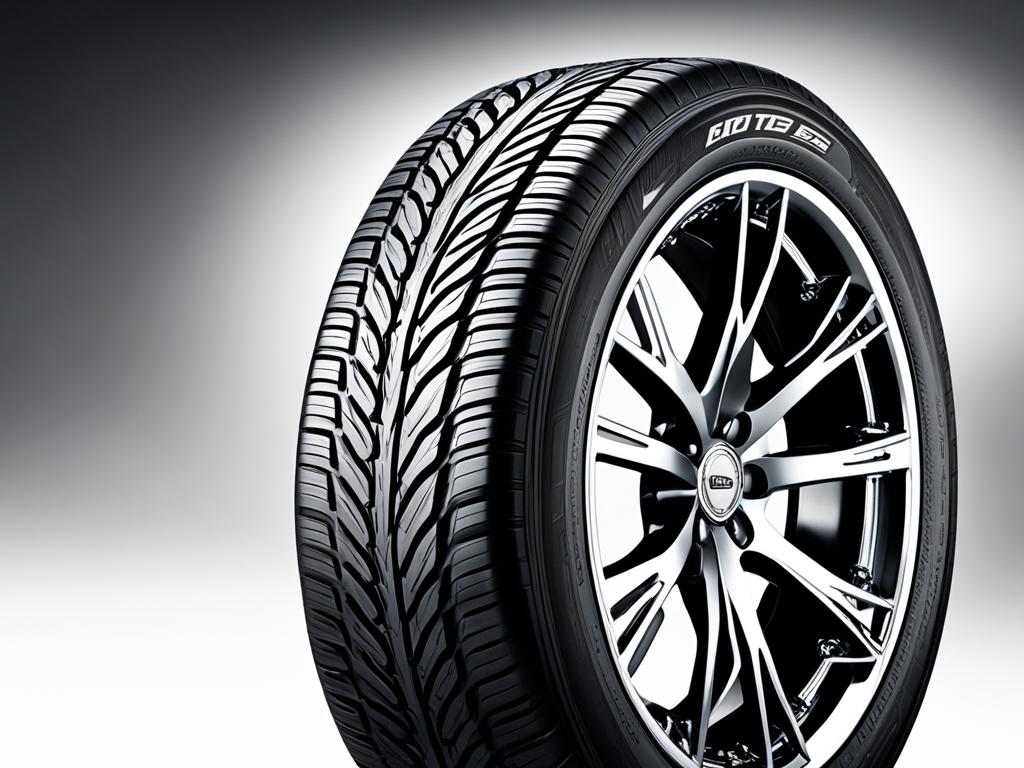Did you know that 10% of tire-related accidents are due to improper tire pressure? Maintaining the correct air pressure in your tires is crucial for your safety on the road. That’s where tire air caps come in. In this comprehensive guide, we will explore everything you need to know about tire air caps and their importance in tire maintenance. From understanding their role to selecting the right cap and avoiding common pitfalls, you’ll be equipped with the knowledge to ensure your tires are properly protected.
Key Takeaways:
- Tire air caps play a crucial role in maintaining optimal tire pressure and ensuring your safety on the road.
- Proper tire maintenance, including the use of air caps, can help prevent accidents related to tire pressure.
- Selecting the right tire air cap and avoiding common pitfalls are essential for maximizing their effectiveness.
- Regular replacement and maintenance of tire air caps are key to extending their lifespan and optimizing tire performance.
- By prioritizing tire care and understanding the importance of tire air caps, you can enjoy a safe and comfortable ride.
Understanding the Essentials of Tire Air Caps
Table of Contents
ToggleIn this section, we will cover the essentials of tire air caps. We will start by defining what tire air caps are and explaining their primary function. We will then explore the different materials used in the construction of tire valve caps and discuss their advantages and disadvantages. Finally, we will emphasize the importance of having a properly functioning tire air cap and how it contributes to maintaining optimal tire pressure, preventing air leakage, and protecting the valve stem.
What Are Tire Air Caps and What Do They Do?
Tire air caps, also known as tire valve caps or valve stem caps, are small protective covers that fit over the valve stem of a tire. Their primary function is to prevent dust, dirt, moisture, and other contaminants from entering the valve stem and causing air leakage. They also help to maintain the proper tire pressure by keeping the valve sealed when not in use.
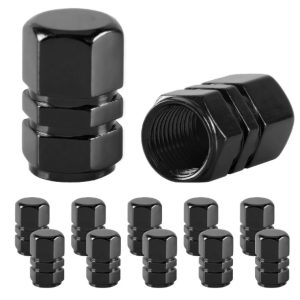
Learn more about How to check tire manufacturing date
Materials Used in Tire Valve Cap Construction
Tire air caps are typically made from various materials, each with its own advantages and disadvantages. Common materials used in the construction of tire valve caps include:
- Plastic: Plastic caps are lightweight, affordable, and resistant to corrosion. However, they may not be as durable as caps made from other materials.
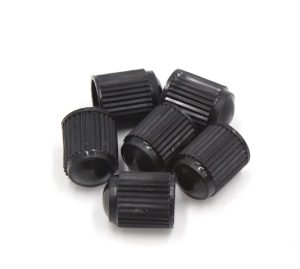
- Metal: Metal caps, such as aluminum or brass, are more durable and provide a more premium look. They are also resistant to corrosion. However, metal caps may be more expensive than plastic caps.
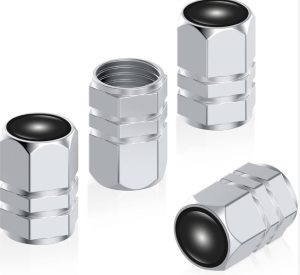
- Rubber: Rubber caps offer flexibility and a secure fit. They are generally more resistant to damage from external forces, such as impacts, and provide good protection against air leakage.
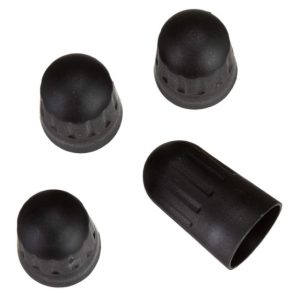
The Importance of a Properly Functioning Tire Air Cap
A properly functioning tire air cap is essential for maintaining optimal tire pressure and ensuring the overall performance of your tires. Here are key reasons why a properly functioning tire air cap is important:
- Maintaining Optimal Tire Pressure: Tire air caps help to prevent air from escaping the tire, ensuring that it maintains the correct pressure. Proper tire pressure is crucial for safe and efficient driving.
- Preventing Air Leakage: A tightly sealed tire air cap prevents dust, dirt, moisture, and other contaminants from entering the valve stem and causing air leakage. This helps to maintain tire pressure and prolong tire life.
- Protecting the Valve Stem: The valve stem is a critical component of the tire that allows for inflation and deflation. A tire air cap serves as a protective barrier, shielding the valve stem from damage and reducing the risk of leaks.
By understanding the importance of tire air caps and their role in maintaining optimal tire pressure and prolonging tire life, you can appreciate the value they bring to your vehicle’s performance and safety.
Learn more about Tire tread depth chart
The Role of Tire Air Caps in Tire Maintenance
In maintaining optimal tire performance and extending tire life, tire air caps play a crucial role. These small accessories contribute to the overall functionality of tires and interact with tire pressure monitoring systems to ensure safe and efficient rides. Understanding the significance of proper tire inflation and regular tire cap maintenance can help prevent tire damage and enhance fuel efficiency, ultimately leading to a smoother and more enjoyable driving experience.
One of the primary functions of tire air caps is to retain the correct tire pressure. They act as seals for the tire valve stems, effectively preventing air leakage and maintaining the recommended inflation level. By ensuring that the tire pressure remains optimal, tire air caps contribute to even wear and prolonged tire life.
Furthermore, tire air caps play a critical role in tire pressure monitoring systems (TPMS). These systems rely on sensors within the tire to monitor pressure levels, and the tire air caps act as protective covers for these sensors. By keeping the sensors safe and secure, tire air caps help maintain accurate pressure readings and ensure the TPMS functions properly.
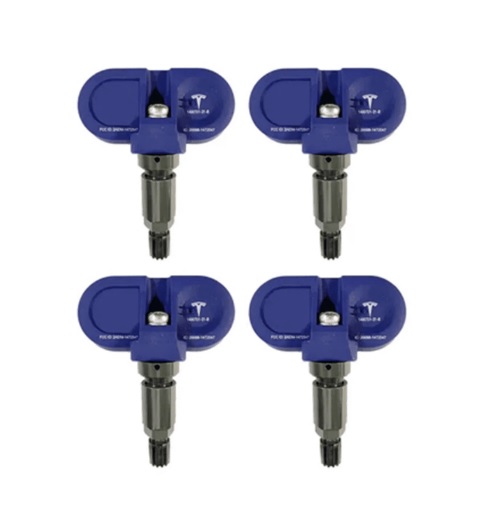
Proper tire inflation is essential for various reasons. Firstly, underinflated tires can impact fuel efficiency by causing increased rolling resistance, resulting in higher fuel consumption. By maintaining the correct tire pressure with the help of tire air caps, you can improve your vehicle’s fuel economy and save money on fuel expenses.
Learn more about Self inflation tire system
Tire air caps also contribute to tire care by preventing debris and dirt from entering the tire valve stems. Accumulated dirt and debris can obstruct the valve mechanism, potentially leading to tire leaks or even valve damage. By regularly cleaning your tire air caps, you can reduce the risk of such issues and ensure proper valve function.
It is worth mentioning that different types of air caps may offer additional features, such as built-in pressure gauges or custom designs. These extras can provide convenience and personalization options for tire maintenance.
In summary, tire air caps play a vital role in tire maintenance by retaining the correct tire pressure, protecting TPMS sensors, improving fuel efficiency, preventing debris entry, and offering additional features. By understanding and prioritizing the care of tire air caps, you can maximize the performance and longevity of your tires, ensuring a safer and more comfortable driving experience.
Do Tires Lose Air Without the Cap?
Many drivers wonder if their tires can lose air without the cap. In this section, we will provide factual information to answer this common concern. We will explore the main factors that contribute to tire air leakage and explain the role of tire valve caps in maintaining proper tire pressure. Understanding these factors and the function of tire air caps will help you assess the impact of a missing cap on your tire’s performance and ride comfort.
Tire air leakage can occur due to various reasons, including:
- Tire damage or wear
- Punctures or leaks in the tire seal
- Valve stem issues
The tire valve cap plays a crucial role in maintaining tire pressure by sealing the valve stem and preventing air from escaping. By covering the valve stem, the cap acts as a protective barrier against dust, debris, moisture, and other factors that can lead to air leakage. Without a cap, the valve stem is exposed to these elements, increasing the risk of air loss.
It is important to note that a missing tire air cap can have a significant impact on tire pressure and overall tire performance. Even a small amount of air loss can lead to underinflated tires, which can affect fuel efficiency, tire wear, handling, and safety on the road. By ensuring your tires have properly installed and functioning air caps, you can minimize the risk of air leakage and maintain optimal tire pressure.
How a Missing Tire Air Cap Affects Your Vehicle's Performance
When it comes to maintaining optimal tire performance and ensuring a smooth and safe ride, every small component matters. The tire air cap, although seemingly insignificant, plays a crucial role in both the performance of your tires and your vehicle as a whole. A missing tire air cap can have several consequences that impact not only your tire’s performance but also the overall performance and efficiency of your vehicle.
Consequences of Driving Without an Air Pressure Cap
Driving without an air pressure cap on your tire can lead to a variety of issues that affect your tire’s performance and longevity. Here are some consequences to be aware of:
- Decreased fuel efficiency: A missing tire air cap can result in gradual air leakage from the tire, leading to decreased tire pressure over time. Underinflated tires create increased rolling resistance, which requires more energy to move the vehicle forward. This can result in reduced fuel efficiency and increased fuel consumption.
- Increased tire wear: Without a proper air pressure cap, your tire is more susceptible to exposure from dust, debris, and moisture. These external elements can cause premature tire wear, leading to uneven tread wear and reduced tire lifespan. Additionally, increased heat buildup from underinflated tires can further accelerate tire degradation.
- Higher risk of tire damage: A missing tire air cap exposes the valve stem to potential damage from external factors such as road debris, stones, or curbs. This can result in valve stem damage or even complete valve failure, leading to air leakage and a flat tire. In extreme cases, it may also cause irreversible damage to the tire itself.
Signs Your Tire Air Cap May Need Attention
It’s essential to monitor the condition and functionality of your tire air caps regularly. Here are some signs that indicate your tire air cap may need attention:
- Decreased tire pressure: If you notice your tire pressure is consistently dropping over a short period, it could be an indication of a missing or faulty air pressure cap.
- Visible signs of damage or wear: Inspect your tire air caps for any visible signs of cracks, breakage, or wear. Any damage can compromise their effectiveness and increase the risk of air leakage.
- Unusual hissing sound: If you notice a hissing sound when your vehicle is parked or during tire inflation, it could be an indication of air leakage due to a faulty or missing air pressure cap.
By paying attention to these signs, you can take prompt action and address any potential issues with your tire air caps, ensuring optimal tire performance and safety.
Choosing the Right Tire Air Cap for Your Vehicle
The process of choosing the right tire air cap for your vehicle may seem simple, but it can have a significant impact on tire performance and longevity. To ensure optimal performance and durability of your tires, it is important to consider various factors during the selection process. These factors include tire valve cap compatibility, design options, and key features.
When choosing a tire air cap, one of the primary considerations is ensuring compatibility with the tire valve cap. Different vehicles may have different types of valve stems, such as standard rubber stems, metal stems, or TPMS (Tire Pressure Monitoring System) sensors. It is essential to choose a tire air cap that fits securely and effectively seals the valve stem to prevent air leakage.
Another important aspect of tire air cap selection is the design. Tire air caps come in various designs and styles, allowing you to personalize your vehicle’s appearance. You can choose from options such as plain caps, caps with logos or emblems, or even custom-designed caps that reflect your personal style.
Additionally, considering the key features of a tire air cap can help optimize its functionality. Some tire air caps come with built-in features, such as a pressure gauge or a valve core tool for easy maintenance. These features can provide added convenience and efficiency when it comes to checking tire pressure or adjusting the valve core.
By carefully considering tire valve cap compatibility, design options, and key features, you can select the right tire air cap for your specific vehicle. This ensures a secure fit, optimal performance, and enhanced aesthetics. Ultimately, choosing the right tire air cap contributes to a safe and comfortable ride for you and your passengers.
Tire Air Cap Selection Tips
| Consideration | Description |
|---|---|
| Tire Valve Cap Compatibility | Ensure the cap is compatible with the type of valve stem on your vehicle, such as rubber stems, metal stems, or TPMS sensors. |
| Design Options | Choose a design that suits your personal style, such as plain caps, caps with logos, or custom-designed caps. |
| Key Features | Consider caps with built-in features like pressure gauges or valve core tools for added convenience. |
Avoiding Common Tire Air Cap Pitfalls
In order to ensure the effective and safe use of tire air caps, it’s important to be aware of common pitfalls and how to avoid them. From installation mistakes to over-tightening and under-tightening, understanding these potential pitfalls will help you properly maintain your tire caps. Additionally, it’s essential to consider tire cap size variations to ensure a secure fit on your tire valve stem. By following these tips, you can prevent unnecessary issues and maximize the functionality of your tire air caps.
Installation Mistakes and How to Avoid Them
Proper installation of tire air caps is crucial to prevent air leakage and maintain optimal tire pressure. Avoid the following installation mistakes:
- Not aligning the cap properly with the valve stem
- Failure to screw the cap on tightly
- Using excessive force during installation
To avoid these mistakes, ensure that the tire cap threads align with the valve stem threads before tightening. Be careful not to cross-thread the cap, as this can damage both the cap and the valve stem. Use your fingers to tighten the cap initially, and then use a valve stem cap wrench or pliers to tighten it securely.
Why Over-tightening or Under-tightening Can Be Harmful
Both over-tightening and under-tightening tire caps can lead to issues:
- Over-tightening: Tightening the cap too much can cause damage to the valve stem threads, making it difficult to remove the cap in the future. It can also lead to air leaks or even breakage of the cap itself.
- Under-tightening: If the cap is not tightened enough, it may loosen over time due to vibrations while driving. This can result in air leakage, causing a gradual loss of tire pressure.
To find the right balance, tighten the tire cap until it is snug but not excessively tight. Use a valve stem cap wrench or pliers to provide the necessary torque, ensuring a secure seal without damaging the valve stem or cap.
Are all Tire Caps the Same Size?
No, tire caps are not all the same size. There are variations in tire valve stem designs, which may require different-sized caps. It’s important to choose a tire cap that matches the valve stem size of your specific vehicle. Some common sizes include:
- Standard valve stem (8 mm)
- Large bore valve stem (10 mm)
- TPMS (Tire Pressure Monitoring System) valve stem (11 mm)
When selecting a tire cap, refer to your vehicle’s owner’s manual or consult a tire professional to ensure you choose the right size for a proper fit. Using an incorrect size can result in a loose or insecure cap, leading to air leakage and potential damage to the valve stem.
In the next section, we will go in-depth about the importance of selecting quality tire air caps for safety and durability. We will discuss trusted tire air cap brands and the criteria to consider when choosing a high-quality cap for your tires.
Tire Air Cap: Selecting Quality for Safety and Durability
When it comes to tire air caps, selecting quality products is crucial for safety and durability. Investing in a reliable tire air cap can contribute to your overall tire maintenance and ensure a safe and comfortable driving experience. To help you make an informed decision, we provide insights into how to identify and select quality tire air caps that meet industry standards.
In order to find a quality tire air cap, it is important to consider trusted brands and reputable manufacturers known for their commitment to producing reliable and long-lasting products. These trusted brands have built their reputation by adhering to stringent quality control measures and using durable materials in their tire air caps. By choosing these trusted brands, you can have peace of mind knowing that your tire air cap is designed to last.
When selecting a tire air cap, look for key features such as a secure fit, corrosion resistance, and robust construction. A secure fit ensures that the cap remains in place, even during rough driving conditions. Corrosion resistance is essential to protect the cap from damage caused by exposure to various elements, such as water and salt. A robust construction ensures the durability of the cap, allowing it to withstand the rigors of everyday use.
In addition, opting for a quality tire air cap means that it is more likely to comply with industry standards and regulations. These standards are in place to ensure that tire air caps meet certain criteria for safety and performance. By choosing a quality tire air cap, you can be confident that it has undergone rigorous testing and meets the necessary standards.
By prioritizing quality in your tire air cap selection, you can enhance safety, prolong the lifespan of your tire caps, and minimize the risk of potential issues. Investing in a durable tire air cap not only protects your tire valves but also contributes to the overall performance and longevity of your tires.
Step-by-Step Guide to Tire Cap Replacement and Maintenance
Tools Needed for Tire Cap Installation and Removal
Before you begin replacing or maintaining your tire air caps, it’s important to gather the necessary tools. Here are the essential tools you’ll need:
- Tire valve cap removal tool or a small pair of pliers
- Tire pressure gauge
- Soap and water solution
- Clean cloth
Having these tools on hand will make the process of installation and removal much easier and more efficient.
Maintenance Tips to Prolong Tire Cap Life
To ensure the longevity and optimal performance of your tire air caps, follow these maintenance tips:
- Regularly clean your tire air caps using a soap and water solution. This will remove dirt, grime, and debris that can accumulate over time.
- Inspect your tire air caps for any signs of damage or wear. Look for cracks, chips, or fading colors. If you notice any issues, consider replacing the cap.
- Check the tire pressure regularly using a tire pressure gauge. Maintaining the correct tire pressure will help prevent unnecessary stress on the tire air cap.
- Ensure a secure fit by tightening the tire air cap properly. Avoid over-tightening, as this can cause damage, or under-tightening, which may result in the cap becoming loose or falling off.
- During routine tire maintenance, such as tire rotation or tire inflation, inspect the tire air caps and replace them if necessary.
By following these maintenance tips, you can prolong the life of your tire air caps and maintain their effectiveness in keeping your tires properly inflated and protected.
Remember, proper tire cap maintenance is an essential part of overall tire care and safety. By dedicating a little time to regularly inspecting and cleaning your tire air caps, you can ensure a comfortable and safe ride on the road.
Conclusion
In conclusion, tire air caps are an essential component of tire maintenance, ensuring optimal tire pressure, safety on the road, and prolonging tire life. By understanding the importance of tire air caps and their role in tire care, you can make informed decisions about their selection and maintenance.
It is crucial to choose the right tire air cap for your vehicle to ensure compatibility and effectiveness. Additionally, avoiding common pitfalls such as installation mistakes and over-tightening or under-tightening can prevent potential harm. Regularly replacing and maintaining your tire caps is also necessary to guarantee a safe and comfortable ride.
By prioritizing the importance of tire air caps and incorporating proper tire maintenance practices into your routine, you can enhance tire performance, increase longevity, and ultimately enjoy a smoother and more comfortable driving experience. Paying attention to tire air cap importance is a small but significant step towards overall tire safety and care, contributing to your overall ride comfort.
FAQ
What are tire air caps and what do they do?
Tire air caps, also known as tire valve caps or valve stem caps, are small caps that are placed over the valve stem of a tire. Their primary function is to seal the valve stem and prevent air leakage. They also serve as a protective cover for the valve stem, preventing dirt, dust, and moisture from entering the tire.
What materials are used in the construction of tire air caps?
Tire air caps are typically made of various materials, including plastic, metal, and rubber. Plastic caps are lightweight and affordable, while metal caps offer durability and a sleek appearance. Rubber caps provide a secure and tight seal. Each material has its own advantages and disadvantages, so it’s important to consider your specific needs and preferences when choosing a tire air cap.
Why is it important to have a properly functioning tire air cap?
Having a properly functioning tire air cap is essential for maintaining optimal tire pressure. It helps prevent air leakage from the tire, which can lead to underinflation and decreased fuel efficiency. A secure and tight seal provided by the tire air cap also protects the valve stem from damage, ensuring the overall integrity of the tire.
What is the role of tire air caps in tire maintenance?
Tire air caps play a crucial role in tire maintenance. They help maintain the recommended tire pressure, which is essential for optimal tire performance, safety, and fuel efficiency. Additionally, tire air caps are often equipped with pressure indicators or can be used in conjunction with tire pressure monitoring systems to easily monitor tire pressure and detect any deviations from the recommended levels. Regularly checking and maintaining tire air caps contribute to prolonging the life of the tire and preventing potential issues.
Do tires lose air without the cap?
Yes, tires can lose air without the cap. The valve stem itself is designed to provide a seal and prevent air leakage. However, factors such as temperature changes, tire punctures, or valve stem damage can cause slow air leakage. Additionally, the absence of a tire air cap can increase the risk of dust, dirt, and moisture entering the valve stem, potentially leading to accelerated air leakage.
What are the potential consequences of driving without an air pressure cap?
Driving without an air pressure cap can have several consequences. It can lead to increased air leakage from the tire, resulting in underinflation, decreased fuel efficiency, and reduced tire performance. The absence of a cap also exposes the valve stem to dirt, dust, and moisture, which can lead to valve corrosion and damage. Additionally, without a cap, the valve stem is more susceptible to mechanical damage from external factors, posing a higher risk of tire failure.
What are the common signs that indicate a tire air cap may need attention?
Common signs that indicate a tire air cap may need attention include visible signs of damage or wear on the cap, decreased tire pressure, and difficulty in maintaining the recommended tire pressure. It’s important to regularly inspect your tire air caps and monitor your tire pressure to ensure optimal tire performance and safety.
How do I choose the right tire air cap for my vehicle?
When choosing a tire air cap, consider factors such as compatibility with your tire valve stem, design options that suit your preferences, and key features like pressure indicators or built-in security features. It’s also important to choose a reliable brand and select a cap that is suitable for the type of wheels on your vehicle (e.g., alloy wheels or steel wheels). Taking these factors into account will help ensure a proper fit and optimal performance.
What are some common pitfalls to avoid when it comes to tire air caps?
Common pitfalls to avoid include installation mistakes, such as not properly screwing the cap onto the valve stem or over-tightening the cap, which can cause damage. It’s important to find the right balance when tightening the tire air cap to ensure a secure fit without putting excessive pressure on the valve stem. Additionally, it’s important to be aware that not all tire air caps are the same size, as there can be variations in tire valve stem designs. Always choose a cap that is compatible with your specific valve stem.
How can I identify and select quality tire air caps?
To select quality tire air caps, prioritize trusted brands and reputable manufacturers known for producing reliable and durable products. Look for caps that meet industry standards and have positive customer reviews. Avoid purchasing cheap or unbranded caps that may not provide a secure seal or withstand the elements. Investing in a quality tire air cap will enhance safety and prolong the life of your caps.
How do I replace and maintain my tire air caps?
To replace a tire air cap, you will need a valve stem removal tool to remove the old cap and a new cap to install. When replacing the cap, ensure it is screwed tightly onto the valve stem without over-tightening. Regular maintenance of your tire air caps includes cleaning them regularly to remove dirt and debris and inspecting them for any signs of damage or wear. Regular maintenance helps ensure the continued functionality and effectiveness of your tire air caps.
